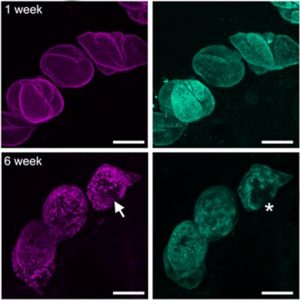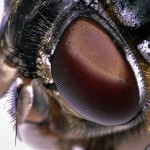 We all get old. Whilst this can be graceful, it’s often associated with an increased incidence of physiological complications. Loss of kidney function in ageing may be mitigated against if we could identify changes at the earliest opportunity. However, studying this process in humans at a molecular and cellular level is extremely difficult, so model organisms are required.
We all get old. Whilst this can be graceful, it’s often associated with an increased incidence of physiological complications. Loss of kidney function in ageing may be mitigated against if we could identify changes at the earliest opportunity. However, studying this process in humans at a molecular and cellular level is extremely difficult, so model organisms are required.
British Heart Foundation funded research conducted at BU and led by Dr Paul Hartley has recently contributed to this field by looking at how fruit fly nephrocytes grow old. These cells, despite millions of years of evolution, share the same ‘filtration genes’ as human kidney cells called podocytes.
The research indicates that fruit fly nephrocytes grow old in a manner similar to podocytes and other kidney cells. This now sets the stage for future work aiming to identify biomarkers of failing kidneys.
The image shows different filtration proteins (denoted by different colours) on young (1 week) and old (6 week) nephrocytes. As the cells age, these filtration proteins are no longer maintained (arrow and asterisk) and the cells lose function. Scale bar = 25 microns.
 Strong Presence of BU at UK Kidney Week
Strong Presence of BU at UK Kidney Week










 Beyond Academia: Exploring Career Options for Early Career Researchers – Online Workshop
Beyond Academia: Exploring Career Options for Early Career Researchers – Online Workshop UKCGE Recognised Research Supervision Programme: Deadline Approaching
UKCGE Recognised Research Supervision Programme: Deadline Approaching SPROUT: From Sustainable Research to Sustainable Research Lives
SPROUT: From Sustainable Research to Sustainable Research Lives BRIAN upgrade and new look
BRIAN upgrade and new look Seeing the fruits of your labour in Bangladesh
Seeing the fruits of your labour in Bangladesh ECR Funding Open Call: Research Culture & Community Grant – Apply now
ECR Funding Open Call: Research Culture & Community Grant – Apply now ECR Funding Open Call: Research Culture & Community Grant – Application Deadline Friday 12 December
ECR Funding Open Call: Research Culture & Community Grant – Application Deadline Friday 12 December MSCA Postdoctoral Fellowships 2025 Call
MSCA Postdoctoral Fellowships 2025 Call ERC Advanced Grant 2025 Webinar
ERC Advanced Grant 2025 Webinar Update on UKRO services
Update on UKRO services European research project exploring use of ‘virtual twins’ to better manage metabolic associated fatty liver disease
European research project exploring use of ‘virtual twins’ to better manage metabolic associated fatty liver disease